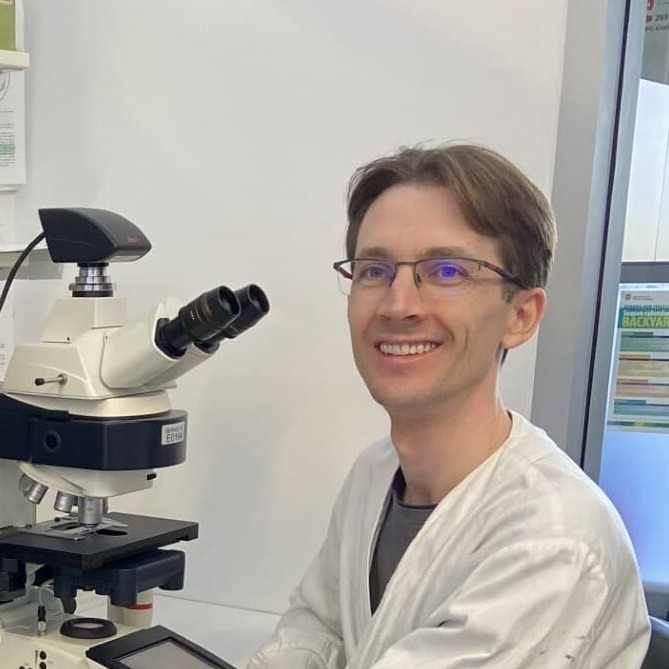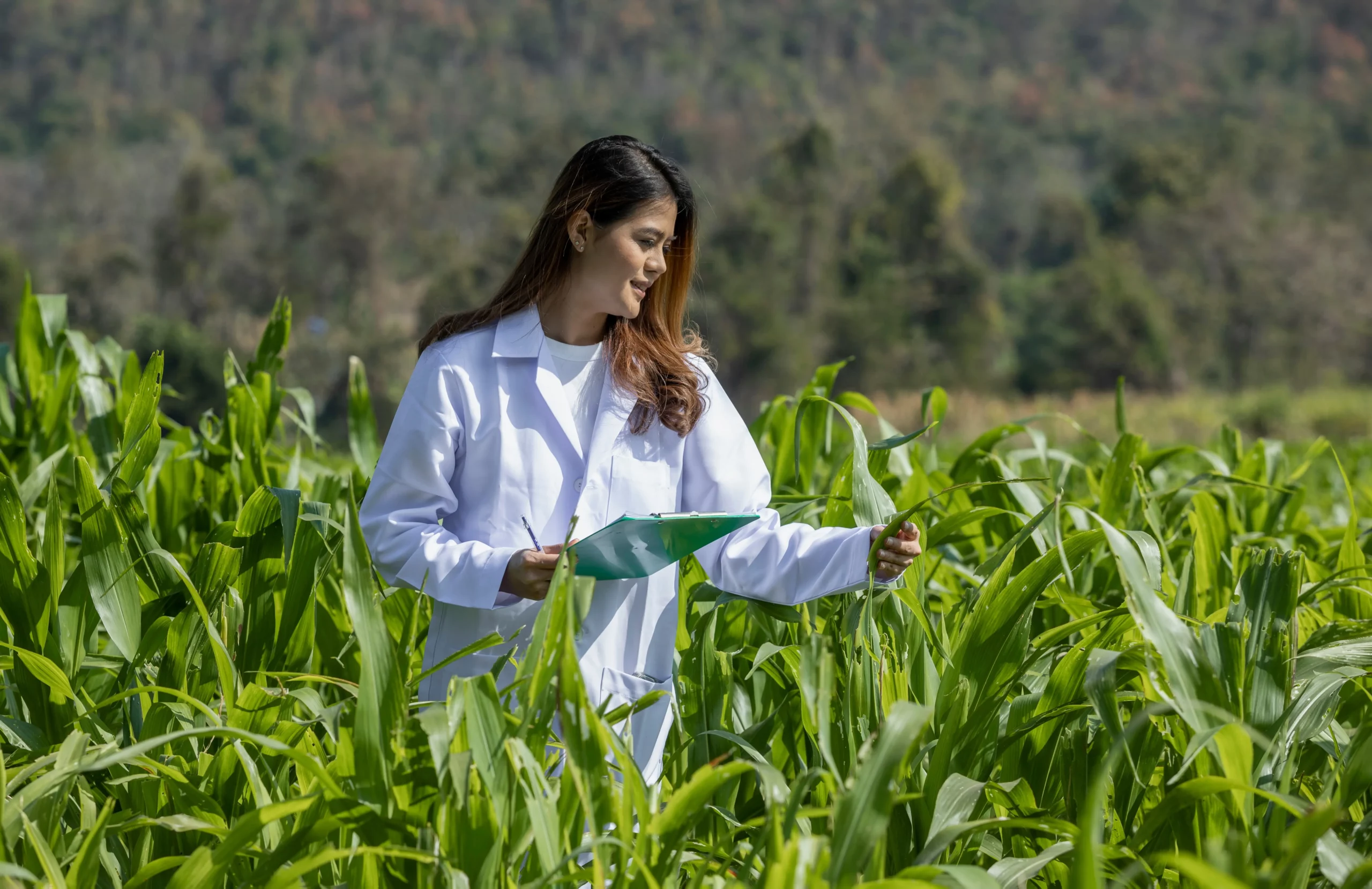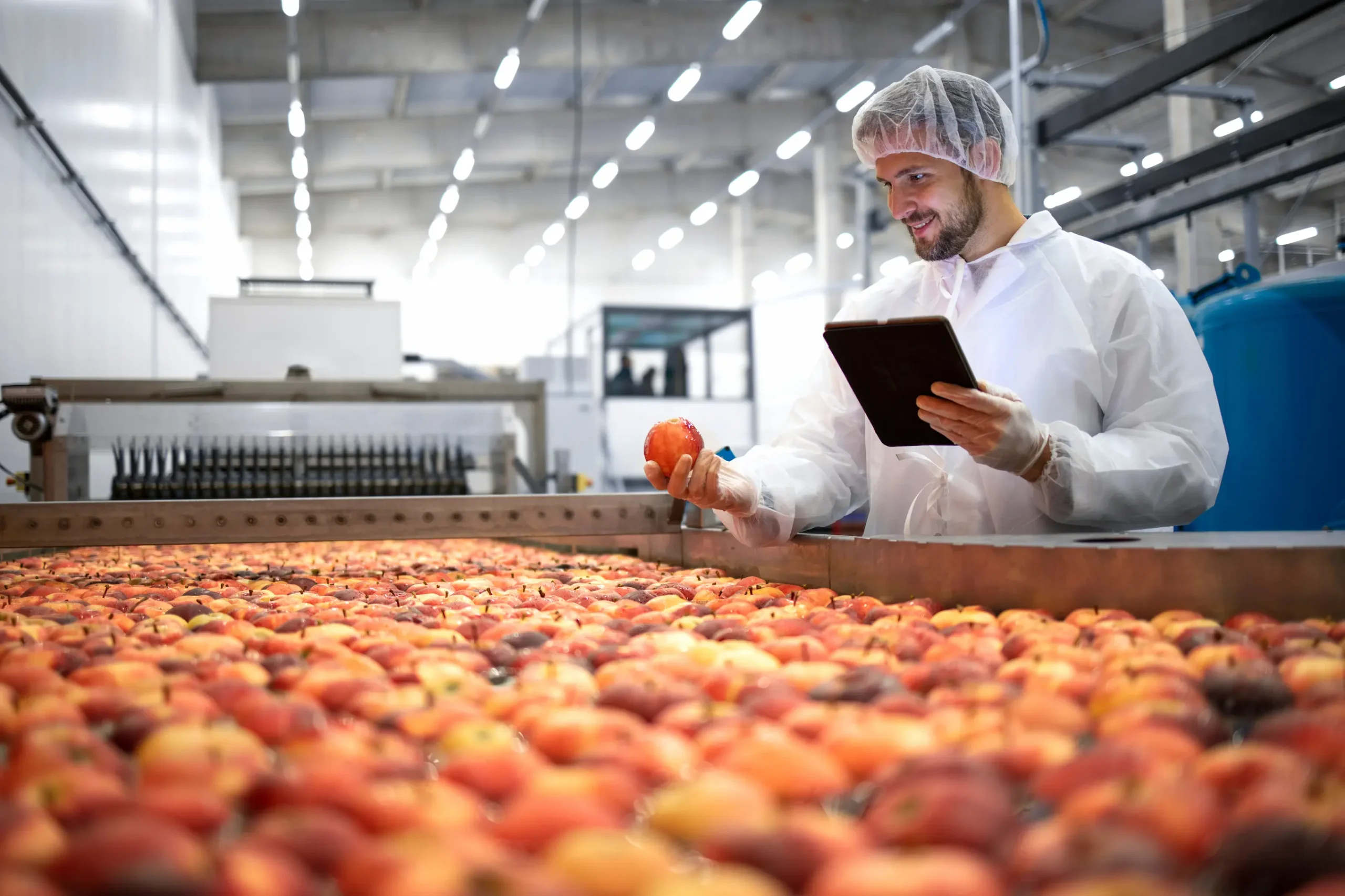The Career Pathways
Plant pathologists play a crucial role in protecting horticultural crops by identifying and managing plant diseases. Their work supports biosecurity efforts, preventing the spread of harmful pathogens that could threaten Australia’s agriculture. Some specialise in research, developing new disease management methods, while others focus on diagnostics, helping growers implement effective prevention and treatment strategies. With a highly varied role that includes laboratory analysis, client communication, and fieldwork, Plant Pathologists contribute to improving crop health and protecting the industry from emerging threats.
Diagnostic Plant Pathologist, NSW DPIRD
Ossie Wildman
Q&A with Ossie Wildman
How did you first get into this field?
My first experiences in this field began whilst studying science at university. Additionally, my dad is a mycologist, so there was also exposure to science prior to commencing my studies at university too.
What was your career progression like?
After high school, I applied to study a Bachelor of Science degree at Western Sydney University (WSU), Hawkesbury campus. During my first year, I did very well, and at the end of that year, they offered me a position in the advanced science course. This program allowed me the opportunity to be paired with a senior lecturer each semester.
Once I completed my bachelor's degree (majoring in microbiology), I then pursued an Honours degree, which focused on developing molecular diagnostics for citrus viroids.
During my Honours degree, I spent time completing research work at the Department of Primary Industries and Regional Development (NSW DPIRD) Elizabeth Macarthur Agricultural Institute (EMAI), and at the WSU Hawkesbury campus.
Once I had completed my Honours degree, a job opportunity became available at the NSW DPIRD as a Technical Officer working on a research project related to developing molecular markers for pest resistance in wheat. After some time in that role, a position became available at the NSW DPIRD working in diagnostic plant pathology, which I applied for, and have been working in this area since then. I have been working in diagnostic plant pathology for about eight years now, with over five years of this being in my current role as a Diagnostic Plant Pathologist.
Once I completed my bachelor's degree (majoring in microbiology), I then pursued an Honours degree, which focused on developing molecular diagnostics for citrus viroids.
During my Honours degree, I spent time completing research work at the Department of Primary Industries and Regional Development (NSW DPIRD) Elizabeth Macarthur Agricultural Institute (EMAI), and at the WSU Hawkesbury campus.
Once I had completed my Honours degree, a job opportunity became available at the NSW DPIRD as a Technical Officer working on a research project related to developing molecular markers for pest resistance in wheat. After some time in that role, a position became available at the NSW DPIRD working in diagnostic plant pathology, which I applied for, and have been working in this area since then. I have been working in diagnostic plant pathology for about eight years now, with over five years of this being in my current role as a Diagnostic Plant Pathologist.
What does a day in your life look like?
It is quite a varied role. In general, the two main parts of my day are laboratory-based tasks and administrative tasks.
We receive a wide variety of diagnostic samples. These can be submitted by government agencies, farmers, agronomists, large companies, or even home gardeners. Many samples are received for general diagnostic screening to determine whether a pathogen is causing disease in an individual plant or crop, and if so, to determine the identity of the pathogen responsible. Some samples are received from our wider NSW DPIRD team, and these may be biosecurity-related for diagnostic or surveillance purposes. We also sometimes receive samples from other laboratories for secondary confirmation. Additionally, other samples may be screened for export certification purposes, and we also conduct import screening of Solanaceae and Cucurbitaceae seed material entering Australia and undergoing mandatory screening.
The lab-based work we conduct involves a range of techniques, including observations of symptomology, plants tissue dissections, traditional microbiological culturing, microscopy, electron microscopy, molecular diagnostics, and ELISA.
The administrative side of my job includes calling and emailing clients, writing reports, and reviewing images of plants sent in with inquiries about potential pathogens. I also discuss results with clients and collaborate with colleagues from interstate government departments and the Federal Department of Agriculture, Fisheries and Forestry. It is a very diverse role, and I enjoy that aspect of it.
We receive a wide variety of diagnostic samples. These can be submitted by government agencies, farmers, agronomists, large companies, or even home gardeners. Many samples are received for general diagnostic screening to determine whether a pathogen is causing disease in an individual plant or crop, and if so, to determine the identity of the pathogen responsible. Some samples are received from our wider NSW DPIRD team, and these may be biosecurity-related for diagnostic or surveillance purposes. We also sometimes receive samples from other laboratories for secondary confirmation. Additionally, other samples may be screened for export certification purposes, and we also conduct import screening of Solanaceae and Cucurbitaceae seed material entering Australia and undergoing mandatory screening.
The lab-based work we conduct involves a range of techniques, including observations of symptomology, plants tissue dissections, traditional microbiological culturing, microscopy, electron microscopy, molecular diagnostics, and ELISA.
The administrative side of my job includes calling and emailing clients, writing reports, and reviewing images of plants sent in with inquiries about potential pathogens. I also discuss results with clients and collaborate with colleagues from interstate government departments and the Federal Department of Agriculture, Fisheries and Forestry. It is a very diverse role, and I enjoy that aspect of it.
Is there any part of your job that you find most rewarding?
One of the most rewarding aspects is definitely the problem-solving and puzzle-solving nature of the job. I enjoy puzzles, and every sample received is like a puzzle itself. Ultimately, I need to analyse all the pieces to construct a picture of what is actually going on.
Can you share a memorable project or experience from your job?
Yes. As I developed an interest for viruses whilst I was at studying university, a highlight for me has been learning how to operate and screen samples for viruses using an electron microscope. This has always stood out to me as impressive—being able to magnify and see something so miniscule. The opportunity to do that here as part of my job is something I feel very privileged to experience. There are not that many places with electron microscope facilities.
What advice would you give to someone considering working in horticulture? Would you recommend this industry?
There is a huge range of jobs in horticulture and agriculture more broadly. Speaking from the perspective of plant pathology, there is not really a formally prescribed pathway. However, for my role, completing university studies in microbiology were critical in allowing me to work in the position I do today. As the horticultural and agricultural industry is so diverse, there are a lot of different avenues and courses that someone can pursue depending on their specific interests.
What is your general impression of the industry?
There is a wide range of dedicated people from diverse backgrounds in the industry. Our clients are fantastic—just great people to talk to. They are happy to learn and eager to gather as much information as possible. Their priority is producing the best and healthiest crops they can and just wanting the best for their industry.
Is there anything else you would like to add that we have not discussed?
Going back to the question about recommending this field to people starting out or wanting to get involved, I would certainly say yes – if it is something you are interested in, it is a great industry to be part of.
Because horticulture and agriculture are such broad industries with so many different roles, there is a lot of potential flexibility for lateral movement between positions.
I have worked for the NSW Government since 2013, for almost 12 years now, and they have been a fantastic employer. We work on a beautiful site, and the work we do is incredibly interesting. I feel very fortunate to be able to do it.
Because horticulture and agriculture are such broad industries with so many different roles, there is a lot of potential flexibility for lateral movement between positions.
I have worked for the NSW Government since 2013, for almost 12 years now, and they have been a fantastic employer. We work on a beautiful site, and the work we do is incredibly interesting. I feel very fortunate to be able to do it.






